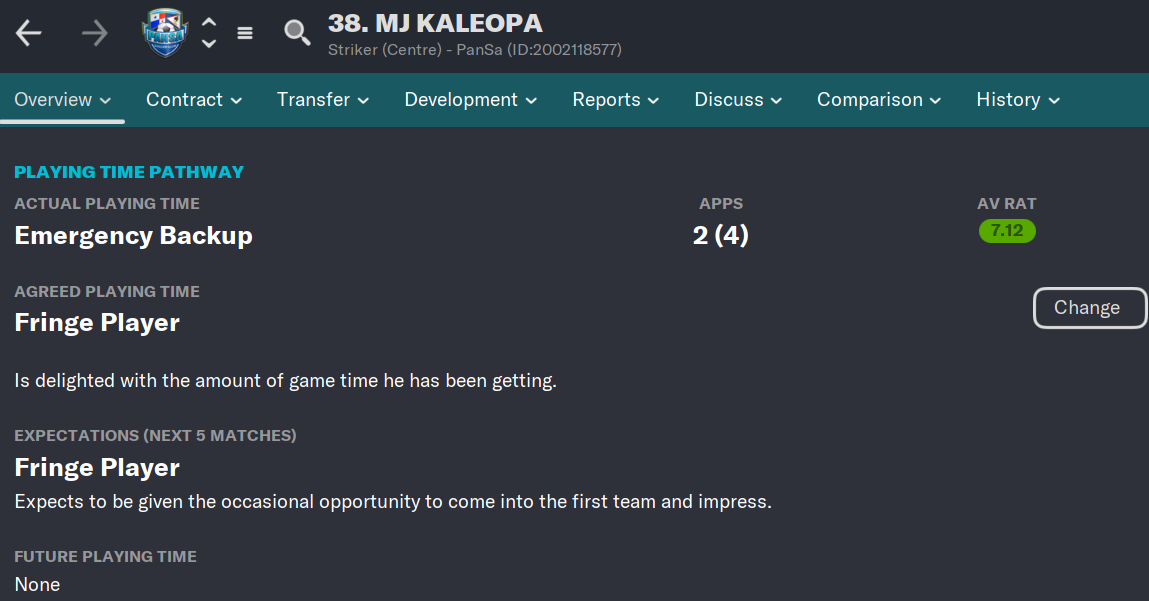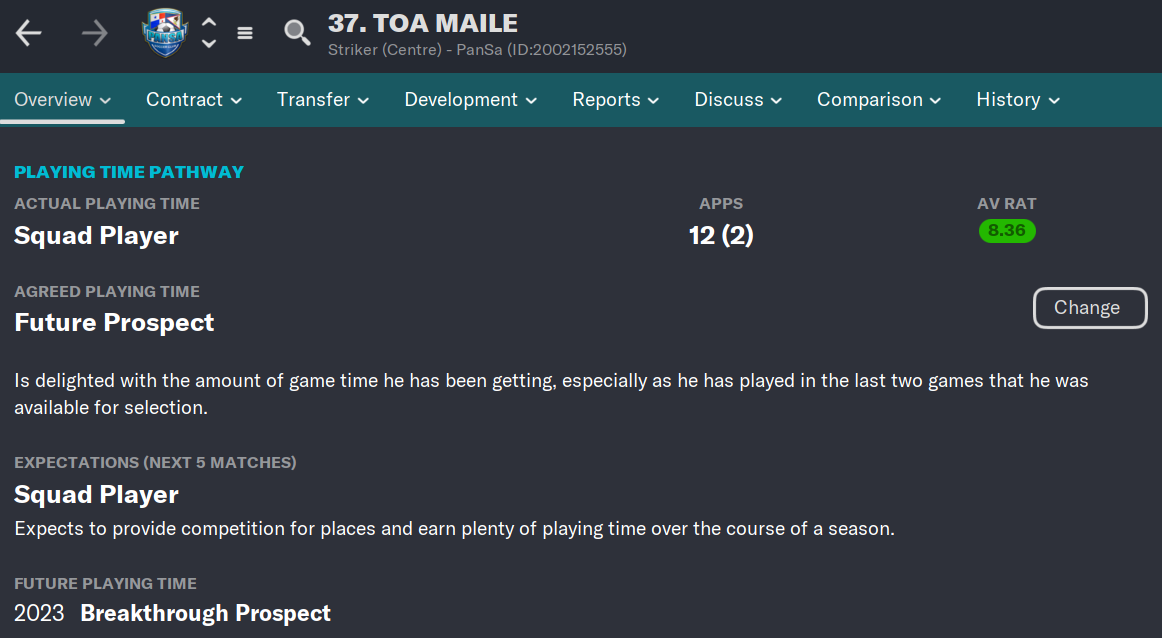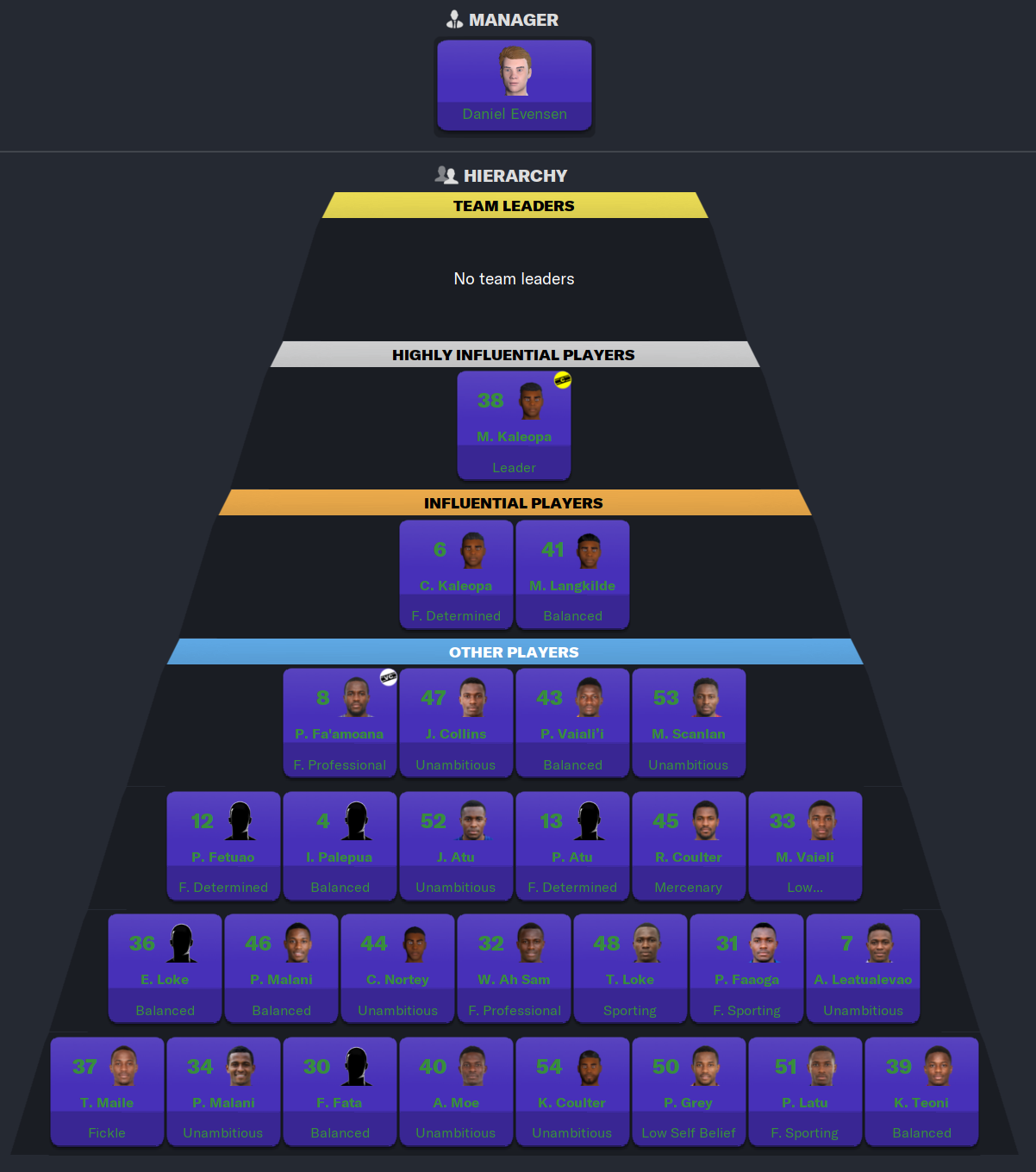Squad Rotation Tip
Ever want to know how to most effectively rotate players on your squad?
It’s something that we all struggle with, to be honest.
Usually you’ll have a good idea of the good and poor players on your team about 6 or 7 games into each season. I prefer to keep a written list of players in preferred starting order as a separate text document:
This helps me know who my “starters” are, and lets me see at a glance which players I want to choose if I need an emergency substitute.
But how do you keep non-starting players happy?
Keeping Non-Starters Happy
The key here is to understand how two systems work.
First is the agreed playing time system. This is the amount of playing time a player is expecting to get.
The game won’t tell you exactly how many games he should start or appear in. However, it will give you some hints.
For example, MJ Kaleopa is 24 years old and probably would be our starting striker if it weren’t for Toa Maile. Here is what Kaelopa expects:
Emergency Backup is actually a step below Fringe Player. However, the game has told me that he is happy with how things are going now. I don’t expect that he will become upset over the next few games; in fact, assuming we clinch the league soon, I’ll probably start him in most of our remaining matches.
Of course, sometimes you find Future Prospect players who are better than the older players already:
Next is the Squad Dynamics system.
While it would be nice if we could give all players the playing time they want, it really isn’t practical. You’ve got to make hard decisions every now and then.
I’ve learned the hard way that the best thing to do is to give a little bit more attention to players who are “influential” or “highly influential.” If these players are upset about their playing time, they might destroy the mood of the entire clubhouse.
In other words, Fata (on the bottom row) is extremely non-influential in our squad. If he becomes unhappy about his playing time, none of the other players will likely care. Most of them probably don’t even know who he is.
However, somebody like MJ Kaleopa needs to stay happy if we want to maintain good squad chemistry. If he gets upset about anything, there is a good chance that most of the clubhouse will get upset alongside him.
If you keep these two things in mind, you’ll find that you only really need to make a few of your players happy, and that you can trim a little bit around the corners to make the fringe players feel content with their playing time.







